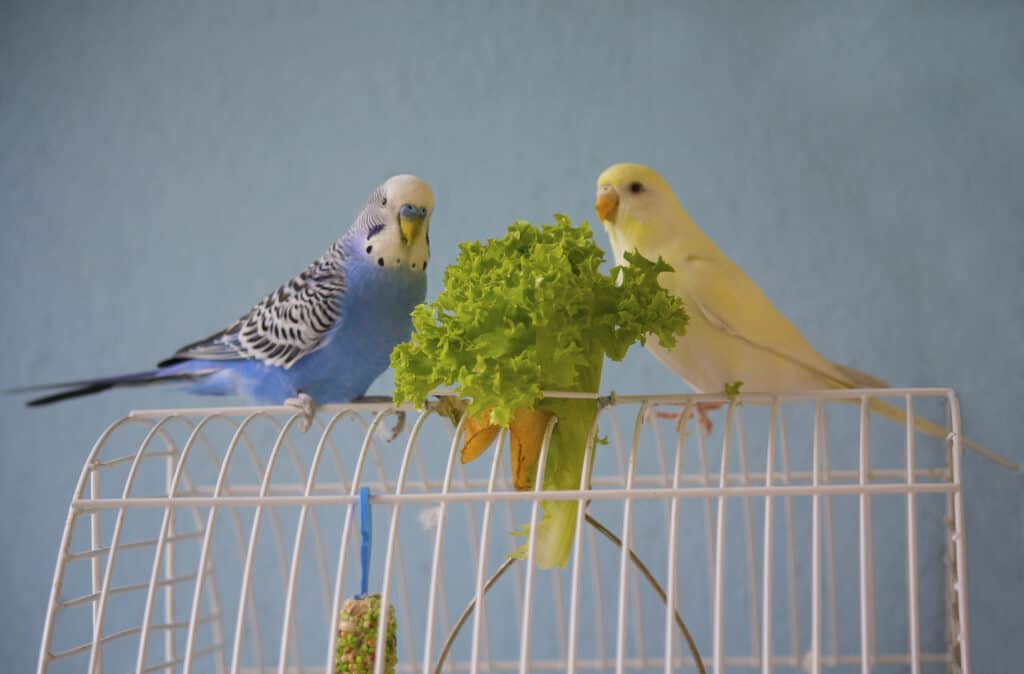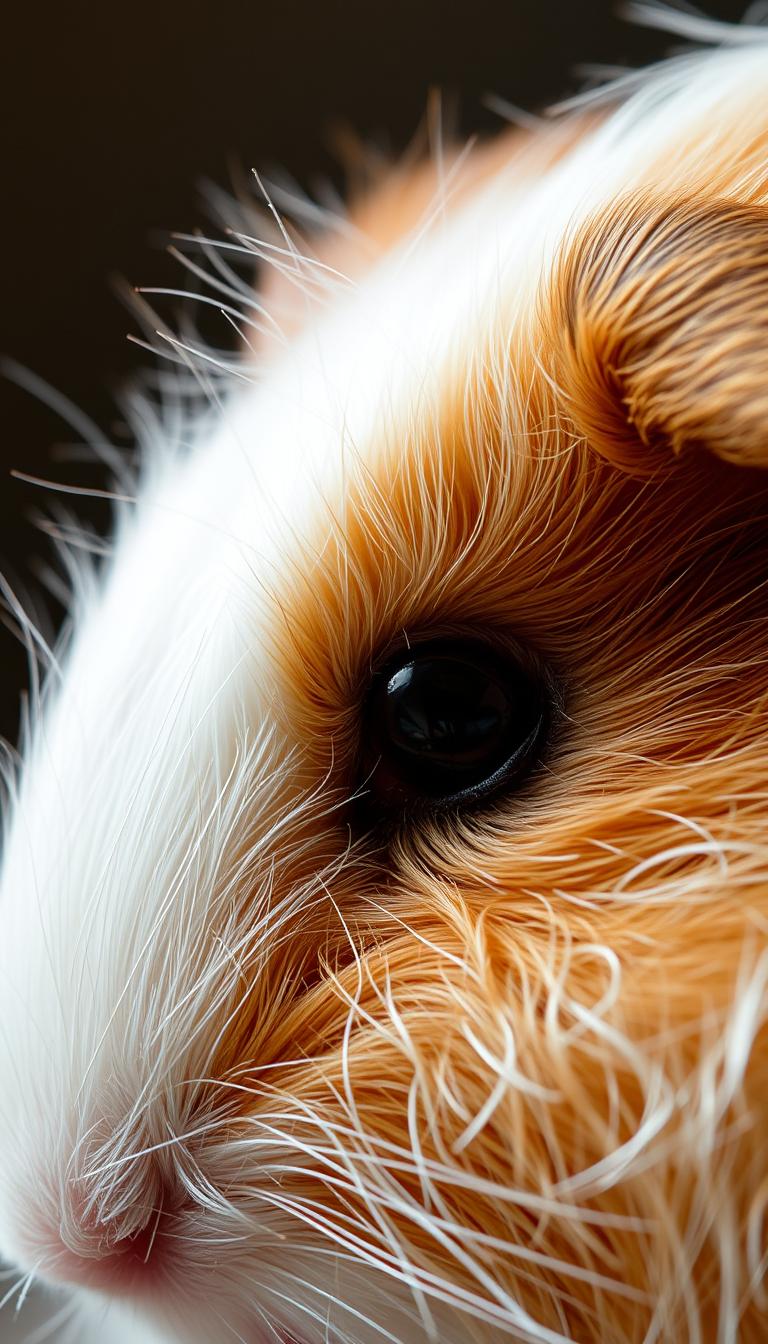Have you heard of Charlie the world’s oldest budgerigar? Charlie from England was born in April 1948 and died in June 1977. He was 29 years old. His species produces some of the most lovable pets in the world. The budgerigar (Melopsittacus undulatus) is from the parakeet family and is oftentimes referred to as such in the US.
Budgies and Parakeets have the same taxonomy. These pets rank just below cats and dogs on the popularity index, a fact that does not surprise any proud budgie owner.
Budgies can die from loneliness but it’s not usually through being sad and low but through the lack of a grooming partner. Budgies need constant attention from other budgies to help keep their feather and skin is good health. The lack of a partner means this is more difficult to do and often leads to illness and sometimes death.
These cute little birds are affectionate and can properly imitate human speech with proper training. They are also inexpensive to look after since they are small. Every budgie owner would love to see his or her delightful charming companion live to Charlie’s ripe old age.

Most small animals have short life spans than larger ones because they have an increased metabolism.
The good news is that while these parakeets are tiny, they have a long life span as displayed by Charlie’s life. Unbelievably, they are the longest-living birds amongst all parakeets.
They have a genetic advantage over other large and popular avian pets such as the more feathered and larger English parakeet because they have had less manipulation genetically over the years.
Looking to upgrade your Budgie Cage? Then check out one of the world best-selling budgie cage on Amazon ↗️
How long can a budgie live?
A budgie in captivity, enjoying the many advantages of better security of resources and protection, has a 5 to 8-year median lifespan. The happy and healthy budgie can live for 15 to 20 years and as was the rare case of Charlie, much longer. Wild budgies have shorter life spans of 4 to 6 years since they are vulnerable prey.
Many factors determine the longevity of the life of a bird in captivity. First, a healthy genetic lineage of a bird in captivity may give it an advantage over its peers in the wild.
Unfortunately, a large percentage of these darling pets will only live half of their capable life course because of poor living conditions and nutrition. Lack of proper nutrition, for instance, will make them overweight.
A lack of exercise combined with excessive fat will lead to organ failure or lipomas that grow between their muscles and skin.
Their diet should, therefore, mimic that of their wild counterparts. Avoid giving them a purely mixed seed diet. Add a variety of freshly sprouted veges and other leafy bits.
Give your playful feathery friend veg, fruits, dried seeds, cuttlebone, and mineral block and watch them flourish. One other critical factor that you have to watch out for is the care of your pet friend. It is a well-known fact that a lonely budgie is a sad budgie.

The typical life a happy budgie
You will find wild budgies running free in the Australian grasslands. To survive the harsh environment that has a ton of natural predators and prolonged droughts, wild budgies will form flocks.
In their nomadic flocks, the birds will stay safer, and find it much easier to locate water, food, and mates. Budgerigars are some of the most social and vocal animals on the planet.
In the flock, they will squawk at each other, as other birds do to communicate. To give their species a higher survival rate, these cute little birds will begin to breed when they are a year old.
They will keep reproducing every rainy season. Unlike the rainbow-colored Scarlet Macaw that mates for life, budgies can mate with multiple partners in a flock within a breeding season.
Even in captivity, they can breed with different mates as long as they have had time to bond with them.
A typical morning for a budgie owner begins with a wild cacophony of squawks, which kicks off as soon as the birds see the morning sun. In typical bird fashion, these surprisingly loud birds will chirp a ton.
The only way you can catch any winks in the morning if you share your room with your birds is to cover their cages with a blanket. This will keep their eager eyes from sighting the morning sun.
Here is a pro-tip though, if your tiny friends are too loud for your liking in the morning, invest in some eclipse curtains. They will keep your room midnight dark, mimicking nighttime, a time when birds are the most docile and sleepy.
Yes, budgies can die of loneliness
At daytime, budgies will spend most of their time grooming and playing with each other. As they are in the morning, a happy budgie is an extremely noisy bird.
At any time of the day, one or all of them will be in song or will be talking to you, taking short breaks to take a nap. New birds in new cages are, however, not as noisy or active.
Moving a bird is a stressful event, and it takes the budgie a few weeks to adapt to its setting.
Most budgie owners also say that the sex of the bird influences its noisy and playful levels. Most female birds are generally less loud than their male counterparts are.
If you have a single budgie that is mostly quiet during the day, then you need to investigate its source of discomfort. Often, your vet will want to know whether your feathery friend’s mental and health condition is in a stellar state.
If the bird turns out to be disease-free, then they will advise you to spend more time with your bird or to find it another budgie for a playmate. Budgies by adaptation are not loners.
They are flocking birds and naturally want chatty company from their kind. If your green or blue colored friend is quiet, then its life is probably ebbing away due to loneliness.
How can you counter your bird’s loneliness?
Birds hate silence because when there are predators, large flocks of them will go mute. Your chatty friend could use a budgie friend to prevent them from going to a depressive state.
Poor mental health will encourage many other health problems and eventually cause death. The picture of a lonely sad bird sitting on a single spot for hours on end is a clear sign that your buddy is unhappy.
Most pet owners will at this point place a mirror next to the bird’s cage to keep it busy. Such simple measures will not captivate the bird for long because they need social interaction.
Others will play recorded bird sounds to it. Unfortunately, the sounds may initially excite your bird and get it talking but it will eventually make the bird more frustrated and agitated.
Birds chirp to communicate, awaiting a response from their peers. Recordings, however, cannot give the expected response to a bird song or chirp, a factor that begins to affect your budgie’s natural communication instincts. There are better ways of keeping your bird happier. These include;
- Getting an extra budgie for company. If you do not have enough time to play with your bird, find them a grooming, cuddling, chirping, and playing partner. Your lonely sad bird will quickly become fun and playful and both birds will keep each entertained. Since these parakeets are small in stature, an extra bird will not increase your pet care budget.
- If you do not want your budgies to bind like glue and leave you out of the picture, keep them in separate cages, but close. Let them stay together when they are well socialized and tame. Alternatively, find them a different species for a playmate.
- If your area has good weather, leave your window wide open. Your budgie will have an opportunity to talk to native birds, who can respond back if they want to.
- Schedule a time when you can talk to your birds. Your bird will love it. Whistle to them from an adjacent room and wait for them to make a response. Whistle back and forth and keep your adorable bird happier.
- If you cannot be with them nor keep another budgie in their vicinity, turn your radio on. Budgies will be less agitated when listening to human voices or singing. Static recorded budgie voices will however grate on their nerves.
- Place your bird’s cage in a garden or any other safe open area. Here, your bird can interact naturally with other birds, making it happier.
Conclusion: Do Budgies get lonely and die from loneliness?
Some budgies can stay alone for a time, as long as their owners meet some basic standards. Alone these energetic, social birds will need activities that will keep their minds busy. Leave shiny parts, bells, treats, and lots of puzzles to play within their cage. Play and talk to your lone budgie if you want them to enjoy a long life.





